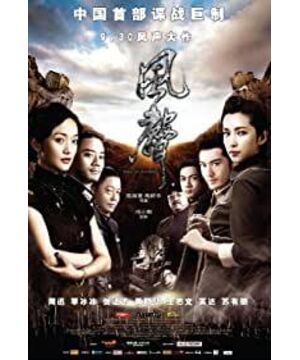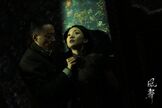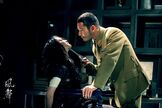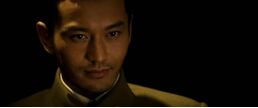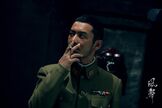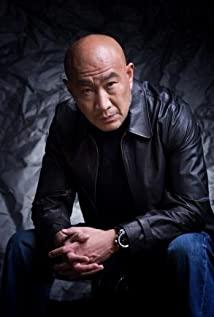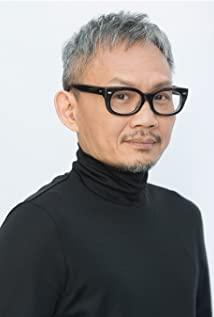As far as the film itself is concerned, "The Sound of the Wind" is a sufficiently "smart" film. Its intelligence is not only reflected in the rigor and enjoyment of the story itself, but also in the needs of the external environment involved in the entire film. Throughout the book, there are various splendid splendours of literary fighting, martial fighting, intellectual fighting, and mutual games. It is likely to become a textbook-style template for Chinese-language commercial blockbusters that seek to make breakthroughs within the framework for a period of time in the future.
As a spy war movie, Zhidou
's success or failure is obviously the most important technical indicator. One of the clever things about Chen Guofu is that he made this should be the most complicated task simple from the beginning. This stems from the rigorous adherence and grasp of the entire story framework at the beginning - fixed time, fixed space, fixed location, fixed judge and judged, and finally echoes. According to the place where the story takes place, the whole film of "The Sound of the Wind" actually involves three locations. The first is Nanjing, where the Wang puppet government is stationed. Here, the cause of the story is explained, and the whole story is warmed up. The way of explanation is very simple and clear. ; Then we arrived at Qiu Zhuang, the core location of the event, where the brewing, eruption, and ending of emotions were all carried out here; at the end, we jumped out of the circle and used flashbacks and voice-overs to summarize the whole story. And the rendering of the theme is higher. Throughout the whole story, "The Sound of the Wind" doesn't even have a few outdoor scenes.
Such a story creation mode is easy to think of Chen Guofu's early "Marriage Notice" and "If You Are the One" that he participated in planning last year. The difference is that the first two films are generally in a parallel combination mode, as long as a reasonable beginning and tone are set, and then the characters can be freely developed according to the development of the characters themselves; and the commercial nature of "The Wind" determines that it must be more precise. Every link is under control, and no deviation is allowed. Watching the entire film, you will find that the story is like a machine cut out, the connection between each paragraph, the brewing and contrast of each emotion, the layers are progressive, and the precision is extremely accurate. From this point of view, it can be extended to the production of a good commercial film - if you don't have the patience and talent of Ning Hao, and you still want to make a blockbuster film, then spend some time or brainstorm to design a simple and good-looking film. story structure.
Of course, no matter how good a story is, if there is no reliable director to control it, it will definitely fail. There are two directors of "The Wind". According to Chen Guofu, the on-site filming was mainly completed by Gao Qunshu, and the reason why he liked Gao Qunshu at first was because he watched his "Closed Hair", "That film has some shortcomings... But its concise, precise and energetic film language is something I have rarely seen in mainland China, or even unprecedented, and its careful consideration of characters also amazes me." Accuracy", "vigorous", and "attentiveness to the characters" are basically achieved. Every shot in the film can convey the corresponding content, without the complicated and tedious feeling of similar films in the past.
However, it may also be because of too much refinement, some links in the film are too short and there are some gaps, which makes some viewers have no time to accept the sudden rise of revolutionary idealism at the end of the film. And some details in the film are also a little vague, such as Wang Zhiwen's state of interrogation of Zhou Xun, which makes people suspicious - is it really anxious? Or a love-hate relationship?
Finally back to the story itself. "The Sound of the Wind" tells a story of catching an "old ghost". Among the five people in front of you, there is an "old ghost" hidden. If the information is exposed prematurely and is recognized by the audience, even if it fails, it is necessary to maintain the suspense and tension of the story. Most of the latter, commenting on this item is a very tricky thing. If you are not careful, you may provide some psychological hints to everyone, so you can only reveal some personal feelings-before the mystery is revealed, from the personality of each character With the performance of the actors, it is basically impossible to guess who is the "old ghost". The author also interviewed some colleagues after watching the movie, and most of them said that the real "old ghost" was unexpected.
In fact, most fans of "The Wind" should be familiar with the means of creating suspense. It is very similar to the "killing game" that was popular among urban young people in the past few years. Bai Xiaonian bit Jin Shenghuo, Gu Xiaomeng bit Wu Zhiguo; Wu Zhiguo was upright by nature, and he immediately fought back and retaliated, which naturally caused more suspicion; Jin Shenghuo was a veteran of the rivers and lakes, so he chose not to speak in order to avoid setting himself on fire; Li Ningyu always showed her temperament and was able to protect herself; Wang Tianxiang and Takeda are the big bosses who control the overall situation.
Fighting
is a spy war movie with a secret room killing game, and within a fixed space and time, it is impossible to implement sugar-coated cannonballs such as beauty tricks. The task can only be accomplished by "fast", "accurate" and "ruthless". Therefore, bloody scenes cannot be avoided. In addition, from a commercial point of view, violence and bloodshed have always been very marketable. Judging from the stills released during the publicity period of "The Wind", the propagandists also seem to regard this as an important selling point.
After watching "The Wind", some media reporters at the scene said with a smile that they watched an "SM blockbuster of the year". Of course, this may be a joke about self-regulating the heavy atmosphere of the film, but it cannot be denied that the bloody fighting scenes involved in this film are even more brutal than last year's "Famous Name". Of the five "old ghost" suspects, four were tortured by the Japanese officer played by Huang Xiaoming and the director of the secret service of the puppet army played by Wang Zhiwen. .
However, after calming down and scrutinizing it carefully, I can still feel the director's careful handling of this part. For example, most of the characters' torture scenes have no direct visual impact. The audience’s psychological substrate is frozen – Bai Xiaonian, who first appeared on the stage, executed his entire execution process through a wooden chair full of iron cones, the dark red blood on the chair, the shot of the executioner grinding the tip of the cone, and the white Xiao Nian's facial expression of collapse and panic, and a scream in the dark were completed; then Li Ningyu, although there was physical contact to her destruction, but the actual function was completely psychological, and due to the deliberate weakening, resulting in Some viewers didn't even understand the persuasive power of this punishment; Wu Zhiguo used a rather oriental prop - acupuncture and a mysterious liquid, and the direct physical impact was still small, mainly due to Wu Gang and the others. Zhang Han completes it with his different wonderful performances.
The only torture process that made people feel unacceptable was Gu Xiaomeng. When I was very young, I once read an article about a story about a member of my underground party who would rather die than surrender after being captured by the national army. There is a sentence in it that I still can’t forget: “The enemy used rusted iron wire to pierce his Testicles, and then lead him to parade through the streets." More than ten years later, the image formed by these words has been lingering in my mind, leaving a serious psychological shadow. I can't describe Gu Xiaomeng's torture scene in an accurate and appropriate language. I can only say that this woman's experience is quite similar to that of the underground gang who would rather die than give in when I was a child.
It can be seen that the director of the "fighting" scene in "The Wind" has made the greatest compromise. If it is further weakened, it may hurt the lofty theme that the film will show at the end. Still, we're going to sweat the kids who walk into the theater to watch The Wind.
Wen Dou
's "The Wind" has the political background of the Anti-Japanese War, but it is not "Nanjing, Nanjing", nor "The Great Cause of National Founding", or even "Assembly", because it does not have a specific and clear political appeal. If you watch "The Wind" with the mentality of watching a commercial type film, the pleasure of harvesting may be greater.
In August, the crew of "The Sound of the Wind" participated in the "Report to the Motherland" large-scale literary and art show held by the Central Propaganda Department. The five leading actors under Huayi's command were all present under the leadership of Wang Zhonglei. This move made some media colleagues puzzled at the time-what should such a black spy film report to the motherland? Now that you have watched the film, you will suddenly become enlightened. In the last part of the film, you will be surprised to find that what gradually looms under the magnificent music and grand background is neither the most lethal and inspiring love, nor the most shocking It is a special theme with unique Chinese characteristics that has not been seen in Chinese commercial films for many years—revolutionary idealism.
You can make wild guesses about this, but you have to admit that this is a great stroke of genius by Chen Guofu and Gao Qunshu. This setting is in line with the current environment. First of all, it means that the most troublesome "direction" problem has been solved, and the commercial operation will be green light all the way; secondly, Chen Guofu's extraordinary understanding of movies determines " "Revolutionary Idealism" is unusual in "The Wind". Due to the brilliance of the characters in the film, the sensational part that sacrificed one's life for justice at the end is not as pretentious as similar films in the past. After many years, "The Sound of Wind" has once again shaped a true revolutionary idealist worthy of respect. The ending part of the film reminded me of "Eavesdropping" not long ago. As a movie fan who loves Chinese movies, I should be more considerate of the creators, and I should applaud their wisdom - after all, what they made is not a blockbuster costume.
The character setting of "The Wind" has a remarkable feature. This is a domestic blockbuster without a leading role. Except for Bai Xiaonian and Jin Shenghuo, who were killed first, the remaining starring roles are average. It is believed that this comes from the reasonable deployment made by Chen Guofu during the script creation process, coupled with Gao Qunshu's strict execution during the shooting.
The number of scenes is limited and average, and the actors' drama becomes more and more day-to-day. Li Bingbing once said in an interview that she and Zhou Xun almost collapsed when the scene was filmed. The first sister of Erhuayi plays a pair of good sisters who are like brothers and sisters. At the same time, they have their own secret thoughts. It is difficult to part emotionally, and rationally, they must keep a distance. The two have the most rivalry scenes in the film, and they both used their housekeeping skills. There is a scene where Li Ningyu incites Gu Xiaomeng to slap in the face.
However, the role of Gu Xiaomeng is really good. Although both of them have a good foundation, she is more versatile than Li Ningyu. Zhou Xun's control of this character is extremely light and natural. Tough and eloquent, let the audience savor the infinite charm of this woman one by one, with four or two strokes of strength. Rene Liu once commented on Zhou Xun's acting skills: "She is like an elf sent by heaven." After watching "The Wind", I really feel it.
Wang Zhiwen and Yingda are as calm as always, especially Wang Zhiwen's villain who runs through the whole film, which plays a good role in escorting the whole film. Wu Zhiguo, played by Zhang Hanyu, upholds his image of a pure man, and has successfully completed the task. The performance of the two idols Su Youpeng and Huang Xiaoming, who were originally undervalued, was beyond everyone's expectations - Bai Xiaonian played by Su Youpeng is feminine and acerbic. Such a role is easy to overplay. He also admitted that Chen Guofu did not treat him at first. He had high hopes, so he was also holding a breath in his heart, and now he has earned this breath for himself; Takeda played by Huang Xiaoming originally wanted to find a Japanese actor to play, and in the final stage he decided to choose Huang Xiaoming, compared to him For the roles played in the past, this time the villain is a breakthrough. After three or five scenes, people can basically forget that he is the idol group who only played handsome in the past. Especially worth mentioning is Huang Xiaoming's lines. He is Japanese and speaks Chinese. The articulation and pronunciation are quite worthwhile, and they are also special highlights in the whole play.
(Written on September 9th, published in "Film World" magazine, with changes~)
View more about The Message reviews


